-
 Bitcoin
Bitcoin $118900
-2.33% -
 Ethereum
Ethereum $4288
-0.13% -
 XRP
XRP $3.151
-3.21% -
 Tether USDt
Tether USDt $1.000
0.02% -
 BNB
BNB $809.5
-1.17% -
 Solana
Solana $175.7
-4.75% -
 USDC
USDC $0.0000
0.01% -
 Dogecoin
Dogecoin $0.2246
-5.75% -
 TRON
TRON $0.3473
2.19% -
 Cardano
Cardano $0.7809
-5.18% -
 Chainlink
Chainlink $21.38
-3.48% -
 Hyperliquid
Hyperliquid $43.29
-5.53% -
 Stellar
Stellar $0.4375
-3.21% -
 Sui
Sui $3.685
-6.68% -
 Bitcoin Cash
Bitcoin Cash $595.2
3.50% -
 Hedera
Hedera $0.2483
-6.60% -
 Ethena USDe
Ethena USDe $1.001
-0.01% -
 Avalanche
Avalanche $23.03
-5.28% -
 Litecoin
Litecoin $119.5
-5.02% -
 Toncoin
Toncoin $3.395
-0.07% -
 UNUS SED LEO
UNUS SED LEO $9.007
-1.19% -
 Shiba Inu
Shiba Inu $0.00001304
-5.44% -
 Uniswap
Uniswap $11.35
1.57% -
 Polkadot
Polkadot $3.898
-5.43% -
 Cronos
Cronos $0.1671
-0.16% -
 Ethena
Ethena $0.8121
-2.45% -
 Dai
Dai $1.000
0.02% -
 Bitget Token
Bitget Token $4.412
-1.73% -
 Monero
Monero $264.0
-0.64% -
 Pepe
Pepe $0.00001128
-8.12%
What is leveraged trading in cryptocurrencies?
Cryptocurrency leveraged trading amplifies profits but also losses dramatically, requiring thorough understanding of margin calls, liquidation, and robust risk management; it's unsuitable for novices.
Mar 12, 2025 at 01:55 pm
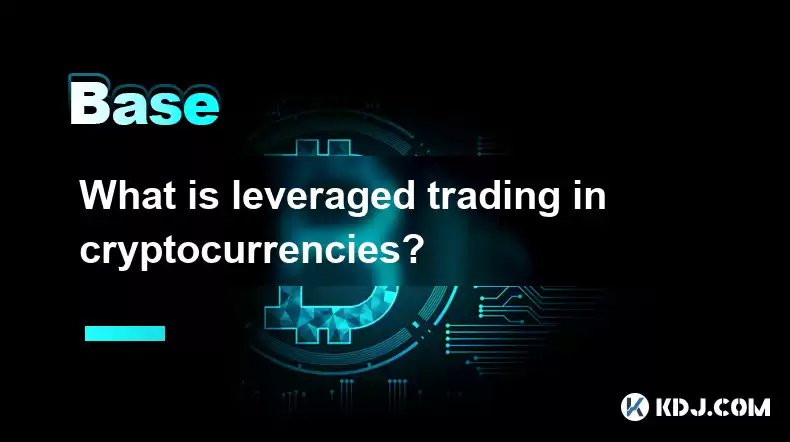
Key Points:
- Leveraged trading magnifies both profits and losses in cryptocurrency trading.
- It involves borrowing funds from an exchange to increase your trading position size.
- Understanding margin calls, liquidation, and risk management is crucial for leveraged trading.
- Different exchanges offer varying leverage ratios and trading conditions.
- Leveraged trading is inherently risky and unsuitable for inexperienced traders.
What is Leveraged Trading in Cryptocurrencies?
Leveraged trading in cryptocurrencies allows traders to amplify their potential profits (and losses) by borrowing funds from a cryptocurrency exchange. Instead of using only your own capital, you leverage borrowed funds to control a larger position. For example, 5x leverage means you control a position five times the size of your initial investment. This can lead to substantial gains if the market moves in your favor, but equally substantial losses if it moves against you.
How Does Leveraged Trading Work?
The process typically involves depositing collateral (your own funds) with the exchange. This collateral secures the borrowed funds. The exchange then provides the leverage, allowing you to open a larger trade than you could with your own capital alone. Your profit or loss is calculated based on the total position size (your capital plus borrowed funds), not just your initial investment. The exchange will automatically close your position (liquidation) if your losses deplete your collateral below a certain threshold (margin call).
Understanding Margin and Margin Calls
Margin refers to the amount of your own capital you deposit as collateral to secure the borrowed funds. A margin call occurs when your position's losses reduce your margin to a level below the exchange's required maintenance margin. This triggers a warning, urging you to deposit more funds to maintain your position. Failure to meet a margin call results in liquidation.
Liquidation in Leveraged Trading
Liquidation is the forced closure of your leveraged position by the exchange. This happens when your losses consume your entire margin. The exchange sells your assets to recover the borrowed funds, and you incur a significant loss. The remaining funds (if any) are returned to you. Liquidation can occur rapidly, especially during volatile market conditions.
Leverage Ratios and Their Implications
Exchanges offer various leverage ratios, typically ranging from 2x to 100x or even higher. A higher leverage ratio amplifies both potential profits and losses exponentially. While a 10x leverage can lead to significant gains, it also means a 10% adverse price movement can wipe out your entire margin. Choosing the appropriate leverage ratio is paramount, based on your risk tolerance and trading strategy.
Risk Management in Leveraged Trading
Effective risk management is crucial for leveraged trading. This involves several key strategies:
- Position Sizing: Carefully determine the size of your positions based on your risk tolerance and the leverage you are using. Never risk more than you can afford to lose.
- Stop-Loss Orders: Set stop-loss orders to automatically close your position if the price moves against you by a predetermined amount. This limits potential losses.
- Take-Profit Orders: Set take-profit orders to automatically close your position when it reaches a certain profit target, securing your gains.
- Diversification: Spread your investments across multiple cryptocurrencies to reduce the impact of losses in a single asset.
- Hedging: Employ hedging strategies, such as shorting, to offset potential losses in your long positions.
Choosing a Cryptocurrency Exchange for Leveraged Trading
Different exchanges offer different leverage ratios, trading fees, and margin requirements. Carefully research and compare various platforms before selecting one for leveraged trading. Consider factors such as the exchange's reputation, security measures, and customer support. Always prioritize reputable and regulated exchanges.
Common Mistakes in Leveraged Trading
Many traders make common mistakes in leveraged trading, leading to substantial losses:
- Over-Leveraging: Using excessive leverage increases the risk of liquidation significantly.
- Ignoring Risk Management: Neglecting stop-loss orders and other risk management techniques can lead to catastrophic losses.
- Emotional Trading: Making impulsive trading decisions based on fear or greed can result in poor outcomes.
- Lack of Understanding: Trading with leverage without fully understanding the risks and mechanics can lead to significant losses.
Frequently Asked Questions:
Q: Is leveraged trading suitable for beginners?
A: No, leveraged trading is generally not recommended for beginners. It's highly risky and requires a thorough understanding of market dynamics, risk management, and trading strategies.
Q: What are the fees associated with leveraged trading?
A: Fees vary across exchanges but typically include trading fees, funding fees (interest on borrowed funds), and potential liquidation fees.
Q: How can I minimize my risk in leveraged trading?
A: Implement robust risk management strategies, including position sizing, stop-loss orders, and diversification. Avoid over-leveraging and emotional trading.
Q: What happens if I don't meet a margin call?
A: If you fail to meet a margin call, the exchange will liquidate your position to recover the borrowed funds. You will likely incur significant losses.
Q: Can I use leveraged trading to make quick profits?
A: While leveraged trading can potentially lead to rapid profits, it also carries a high risk of equally rapid losses. Focus on long-term strategies rather than quick gains.
Q: Are there any regulations governing leveraged trading in cryptocurrencies?
A: Regulations vary significantly across jurisdictions. Some countries have stricter regulations than others, while some have minimal or no specific regulations for crypto leveraged trading. It's crucial to understand the legal landscape in your region.
Disclaimer:info@kdj.com
The information provided is not trading advice. kdj.com does not assume any responsibility for any investments made based on the information provided in this article. Cryptocurrencies are highly volatile and it is highly recommended that you invest with caution after thorough research!
If you believe that the content used on this website infringes your copyright, please contact us immediately (info@kdj.com) and we will delete it promptly.
- Dogecoin, Presale, Surge: Riding the Meme Coin Wave
- 2025-08-12 11:10:12
- Dogecoin, Tron, and the ROI Reality Check: What's a Crypto Investor to Do?
- 2025-08-12 11:15:12
- Ethereum Layer-2 Scaling Competition Heats Up as ETH Breaks $4K
- 2025-08-12 10:30:12
- China Regulation, Stablecoins, and BNB Presale: Navigating the Crypto Landscape
- 2025-08-12 11:30:12
- Meme Coins, Investment, and Token Burns: What's Hot in 2025?
- 2025-08-12 10:30:12
- BlockDAG, Chainlink, Hedera: The Cryptos Enterprises are Eyeing
- 2025-08-12 09:30:12
Related knowledge
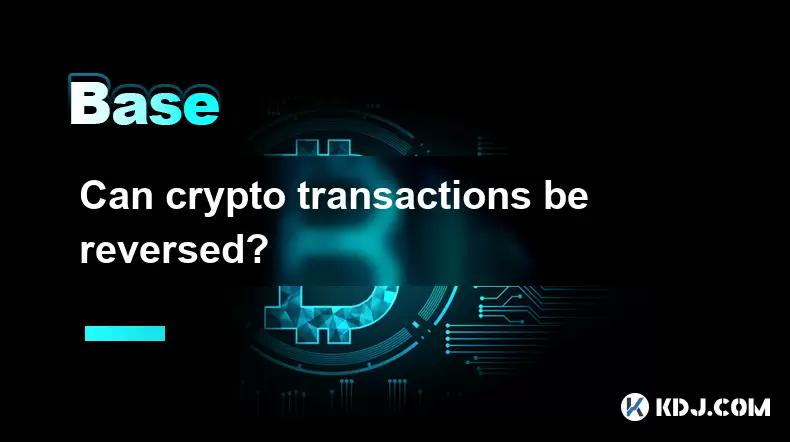
Can crypto transactions be reversed?
Aug 10,2025 at 01:35am
Understanding the Immutability of Blockchain TransactionsCryptocurrency transactions are built on blockchain technology, which is designed to be immut...
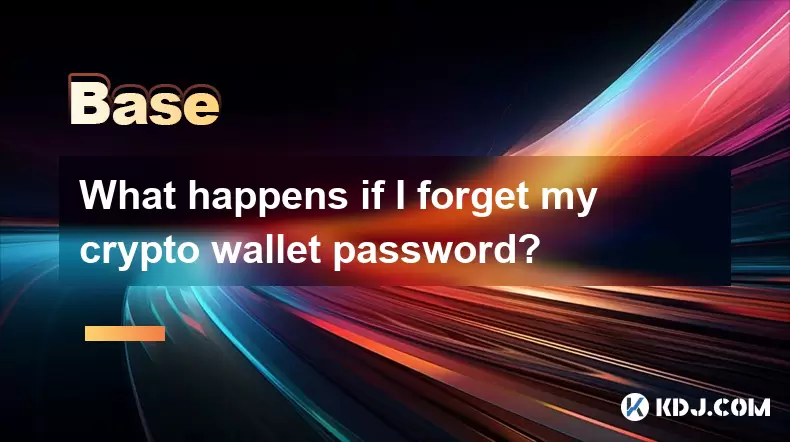
What happens if I forget my crypto wallet password?
Aug 09,2025 at 08:50am
Understanding the Role of a Crypto Wallet PasswordA crypto wallet password serves as a critical security layer that protects access to your digital as...
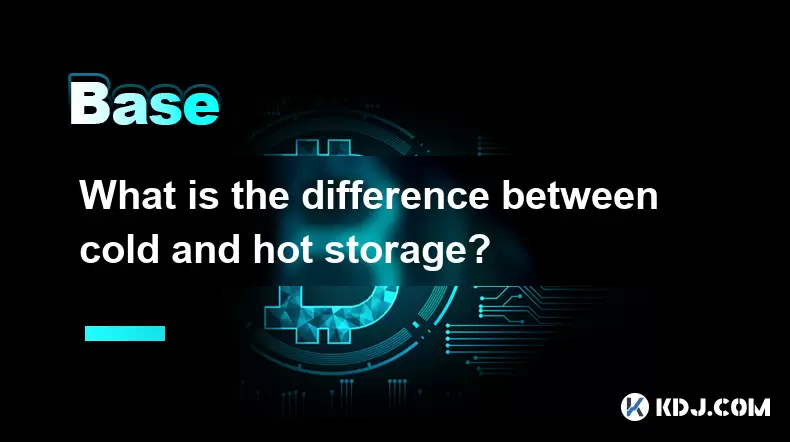
What is the difference between cold and hot storage?
Aug 12,2025 at 01:01am
Understanding Cold Storage in CryptocurrencyCold storage refers to offline methods of storing cryptocurrency private keys, ensuring they are not expos...
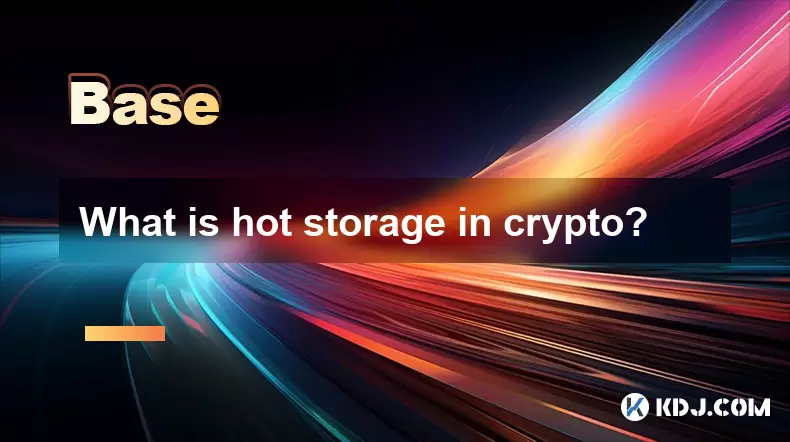
What is hot storage in crypto?
Aug 11,2025 at 07:08am
Understanding Hot Storage in CryptocurrencyHot storage refers to cryptocurrency wallets that are connected to the internet. Unlike cold storage soluti...
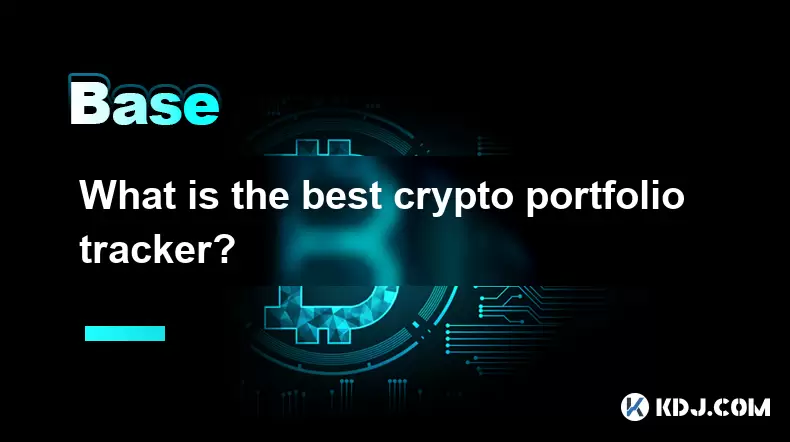
What is the best crypto portfolio tracker?
Aug 10,2025 at 05:08am
Understanding the Role of a Crypto Portfolio TrackerA crypto portfolio tracker is a digital tool designed to help investors monitor the performance of...
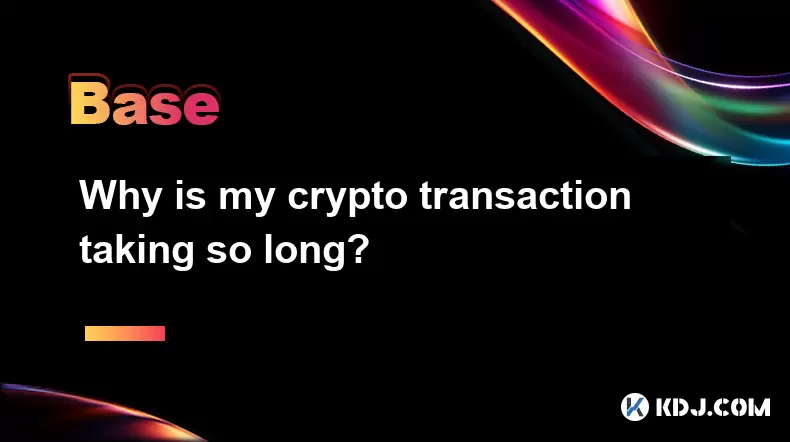
Why is my crypto transaction taking so long?
Aug 11,2025 at 11:35am
Understanding Blockchain Network CongestionWhen a crypto transaction is delayed, one of the most common causes is network congestion on the blockchain...

Can crypto transactions be reversed?
Aug 10,2025 at 01:35am
Understanding the Immutability of Blockchain TransactionsCryptocurrency transactions are built on blockchain technology, which is designed to be immut...

What happens if I forget my crypto wallet password?
Aug 09,2025 at 08:50am
Understanding the Role of a Crypto Wallet PasswordA crypto wallet password serves as a critical security layer that protects access to your digital as...

What is the difference between cold and hot storage?
Aug 12,2025 at 01:01am
Understanding Cold Storage in CryptocurrencyCold storage refers to offline methods of storing cryptocurrency private keys, ensuring they are not expos...

What is hot storage in crypto?
Aug 11,2025 at 07:08am
Understanding Hot Storage in CryptocurrencyHot storage refers to cryptocurrency wallets that are connected to the internet. Unlike cold storage soluti...

What is the best crypto portfolio tracker?
Aug 10,2025 at 05:08am
Understanding the Role of a Crypto Portfolio TrackerA crypto portfolio tracker is a digital tool designed to help investors monitor the performance of...

Why is my crypto transaction taking so long?
Aug 11,2025 at 11:35am
Understanding Blockchain Network CongestionWhen a crypto transaction is delayed, one of the most common causes is network congestion on the blockchain...
See all articles

























































































